The Data Scientist’s Guide to a Career in Pharma

Skills, Trends, and Opportunities
Want to make an impact in the healthcare world with your data science skills? The pharmaceutical and biotech industries are full of opportunities to do just that. We will start by taking a broad look at the global demand for data scientists in this space, then dive into specific roles and how to find the best fit for your skills. I’ll also share my own experience as a research and development data scientist intern at a major pharmaceutical company, along with practical tips to help you land a role in this field.
Section 1: Data Science Demand by Industry: A Big-Picture Market Overview
The chart below shows the demand for data scientists across various industries. While Information Technology leads the way with 87% of total job ads, the pharmaceutical and biotechnology sector also shows a strong demand for data scientists. This industry uses data scientists to create predictive models on the molecular and clinical data that help in drug discovery and drug trials. Data scientists are also needed in the market side of the business where they analyze the market, discover potential customers, and target advertising to them.
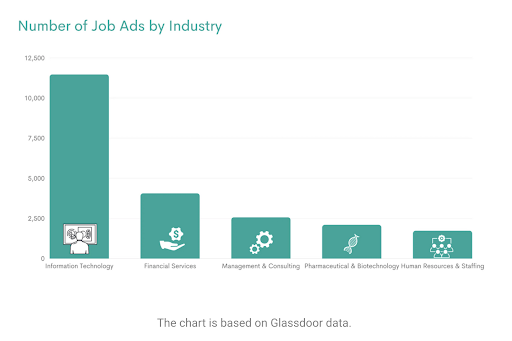
Section 2: Climbing the Ladder: Career Growth for Data Scientists in Pharma
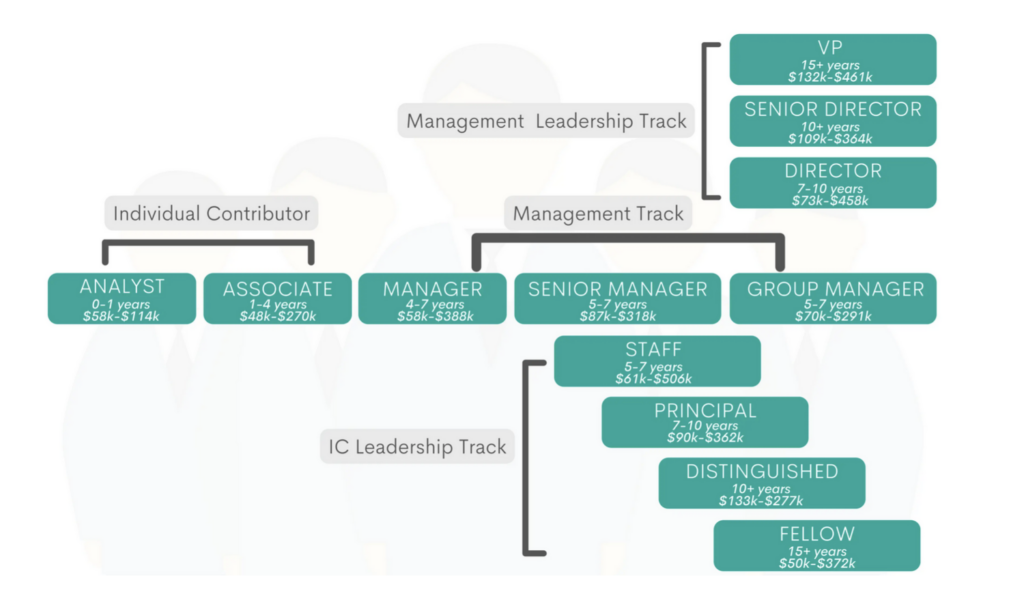
The career journey for data scientists in the pharmaceutical industry typically begins with individual contributor roles, such as Analyst or Associate, focused on hands-on data work and model development. After building a solid foundation, data scientists often advance to management positions, where they begin overseeing projects and teams in roles like Manager, Senior Manager, and Group Manager. From here, the path branches into two leadership tracks. The Management Leadership Track emphasizes team management, with levels like Director, Senior Director, and Vice President. Alternatively, the IC Leadership Track allows data scientists to focus on high-impact technical contributions, advancing through roles like Staff, Principal, Distinguished, and Fellow. Each path offers unique opportunities for growth, allowing data scientists to make significant contributions whether they choose a people-focused or technical leadership role.
Section 3: Exploring Data Science Roles in the Pharmaceutical Sector
Data scientists in pharma and biotech work across various departments, each with distinct tasks and skill requirements. Understanding these differences can help you identify the best fit for your strengths and career goals.
The Research & Development Data Scientist
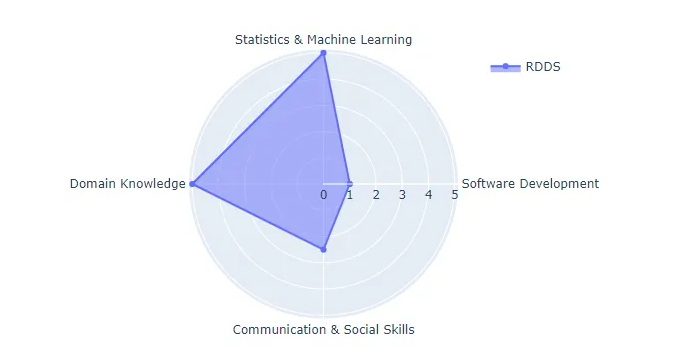
R&D data scientists (RDDS) bridge academia and industry, focusing on core research tasks like designing enzymes, drugs, and microbes. They primarily work with experimental data from labs and often possess a strong background in a relevant scientific field. Advanced machine learning skills are essential, along with creativity for innovation. RDDS typically work within Jupyter Notebooks, focusing on research rather than software development practices, and social skills are beneficial but not critical.
The Application Data Scientist
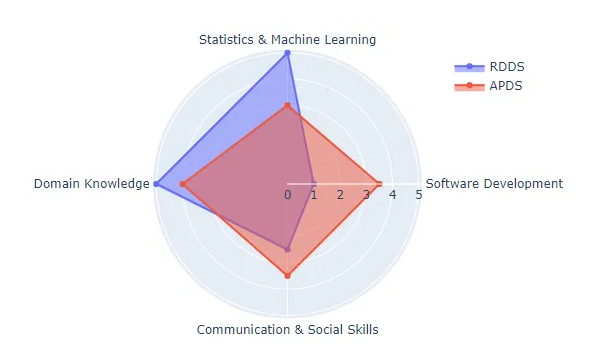
Application data scientists (APDS) address practical business needs, working in agile teams to develop data products for internal or external users. These roles are often department-specific, like quality control, and benefit from domain expertise. APDS professionals engage frequently with stakeholders to adapt to changing requirements, so strong communication skills are key to success in this collaborative environment.
The Generalist Data Scientist
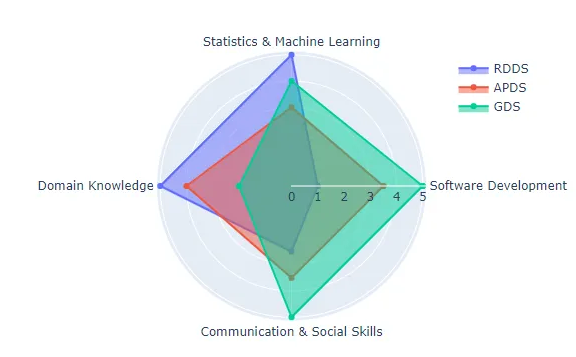
Generalist data scientists (GDS) are often part of central digital or IT departments, supporting various functions across the company. They work on diverse projects—marketing, finance, customer service—requiring them to adapt quickly to different domains without deep expertise in each. Communication and networking skills are vital, enabling GDS professionals to build partnerships and facilitate cross-functional collaboration.
Section 4: My Journey as a Data Science Intern in a Major Pharmaceutical Company
During my internship as a Research & Development Data Scientist at Johnson & Johnson, our team’s primary focus was preparing clinical data for analysis to support drug development. We ingested raw clinical data into a large database, standardized it according to FDA standards (STDM & ADAM), and created common data models for researchers and scientists. This role fit the Research & Development Data Scientist profile, where specialized data science supports core scientific research. The team was divided into backend developers, who handled data ingestion and mappings, and frontend developers, who built internal applications allowing users to request data and view summary statistics. A product manager coordinated between the teams, gathering user needs and ensuring timely delivery.
My Tips on Getting Hired as a Data Scientist in Pharma
- Build relevant experience at Georgetown before applying for pharma or biotech roles. Without prior experience in healthcare or health-related data, it can be very difficult to secure a role in this field. Since I had none, I decided to join a Multiple Myeloma project as a research assistant at Georgetown. This hands-on experience in the field was instrumental in helping me secure my internship.
- Identify your preferred role and department based on your skills and interests (referencing the categories above). This approach not only increases your chances of securing a role but ensures you’ll enjoy and excel in the position.
- Leverage DSAN resources like the Professional Development Center to enhance your resume and practice interview skills.
- Target companies you genuinely admire—while pharma companies may have similar goals, each has its own values and culture. Networking with employees can provide firsthand insights into their work environment.
- Be persistent and proactive. Keep an eye on job openings and apply consistently. For example, I submitted over 20 applications to Johnson & Johnson before receiving an internship offer.
Sources:
A Complete Guide to a Data Science Career
Novo Nordisk AI and Analytics Centre of Excellence
